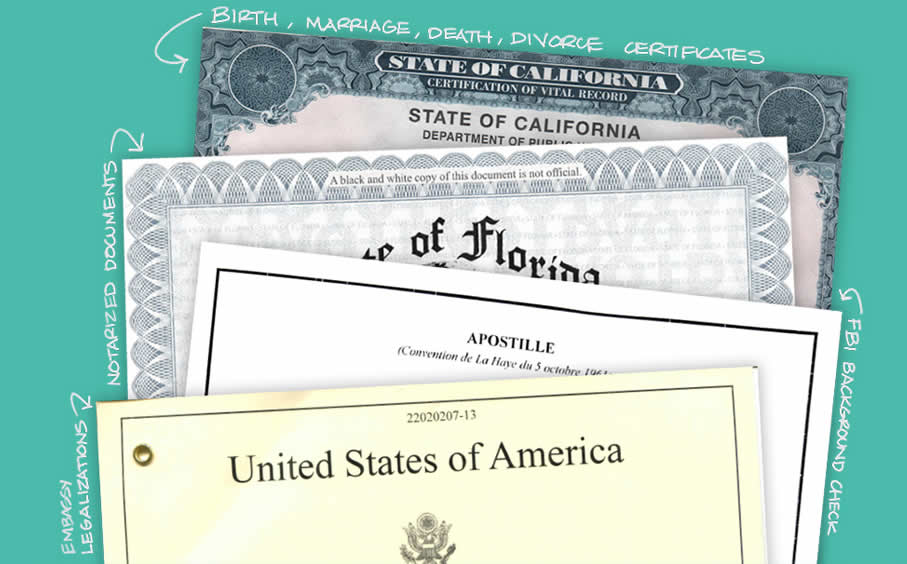Apostille Solutions in Houston: Simplify Your Record Legalization
Apostille Solutions in Houston: Simplify Your Record Legalization
Blog Article
Introducing the Crucial Role of Apostille in Simplifying International Document Validation Processes
In the realm of worldwide events, the validation of records holds critical significance. By affixing an apostille to a document, it goes through a streamlined validation that is identified throughout various countries, hence relieving the worries linked with cross-border paper authentication.
Recognizing Apostille Basics
In the realm of record validation for worldwide usage, grasping the essential concepts of apostille authentication is critical. An apostille is a specialized certification that validates the credibility of a document for use in international countries that belong to the Hague Apostille Convention. Comprehending the fundamentals of apostille involves acknowledging that it does not verify the content of the file but rather certifies the signature and seal of the issuing authority. This certification streamlines the process of international file validation by ensuring that the document will certainly be recognized as authentic in countries that are celebrations to the Apostille Convention.
Apostilles are generally provided for essential records such as birth certifications, marital relationship certifications, and scholastic records. The essential elements of an apostille include the name of the country where it was provided, the name of the individual authorizing the paper, the capability in which the individual signed the document, the seal or stamp of the providing authority, and the day of issuance. By comprehending these fundamental aspects of apostille authentication, people and organizations can browse the complexities of worldwide paper recognition with self-confidence and efficiency.
Advantages of Apostille for Recognition

Additionally, the apostille streamlines the verification procedure by offering a standard certification that validates the authenticity of the file, such as birth certifications, marriage licenses, notarized acts, and scholastic records. This standardized format minimizes the risk of denial due to unfamiliarity with foreign documents, hence enhancing the performance of cross-border transactions.
Moreover, the apostille assists in getting rid of the need for several layers of verification by government authorities, as the apostille itself indicates the file's credibility. This not only accelerates the paper validation process but additionally minimizes the linked expenses and governmental hurdles, making it a cost-effective and practical service for businesses and people taking part in global activities.
Simplifying Cross-Border Record Authentication
Simplifying cross-border document verification, the apostille eliminates the requirement for extensive and often challenging recognition procedures generally needed when providing files in international countries. By attaching an apostille to a document, the releasing nation certifies the credibility of the record, making it easily appropriate in other nations that are component of the Hague Apostille Convention.
Additionally, the apostille system boosts the protection and credibility of cross-border record validation by providing a transparent and globally accepted device for validating the validity of records. This simplification of authentication processes not only benefits individuals and that site companies seeking to operate globally yet additionally promotes smoother communication and cooperation between countries by guaranteeing the integrity of shared documentation.
Importance of Apostille in Legalization

Apostille ensures that lawful files such as birth certifications, marriage certifications, powers of attorney, and court papers are recognized and accepted in international territories. This is especially crucial in lawful issues such as worldwide fosterings, migration procedures, or organization purchases that include events from various countries. The apostille procedure minimizes the lengthy treatments and governmental obstacles usually connected with record legalisation, making worldwide purchases more reliable and legally binding. In final thought, the value of apostille in the legalisation of international files can not be overemphasized, as it assists in smooth cross-border interactions and ensures the validity and authenticity of lawful paperwork.
Apostille Vs. Standard Recognition Techniques
Contrasting apostille with typical recognition approaches exposes distinctive differences in the efficiency and simpleness of document verification processes for global use. Apostille, as a standard and structured method developed by the Hague Convention, uses a much more straightforward method to verifying files contrasted to traditional techniques. Traditional validation processes commonly involve multiple steps, consisting of notarization, qualification by government authorities, and consular legalisation, which can be taxing and cumbersome.
Apostille, on the other hand, simplifies this procedure by sites accrediting files with a solitary apostille certificate issued by a qualified authority in the country where the file stems (Houston TX Apostille). This certificate is identified by all member countries of the Hague Convention, getting visit this website rid of the requirement for additional consular office legalization. Because of this, apostille significantly decreases the time and effort required for file validation, making it a favored selection for companies and people involved in international transactions
Final Thought
Finally, apostille plays an important function in simplifying international paper validation processes by offering a standardized approach of verification that is acknowledged across getting involved countries. By streamlining the legalisation procedure, apostille eliminates the requirement for numerous layers of validation, lowering time and costs related to cross-border paper authentication. This efficient system benefits individuals and organizations seeking to use international documents for lawful functions, ensuring smoother international deals.
By attaching an apostille to a document, it goes through a simplified validation that is identified across countless nations, thus easing the concerns connected with cross-border paper authentication. Simplifying cross-border record authentication, the apostille gets rid of the demand for prolonged and commonly difficult recognition treatments usually needed when offering documents in international countries. By fastening an apostille to a paper, the issuing nation accredits the authenticity of the file, making it conveniently appropriate in other countries that are component of the Hague Apostille Convention. By attaching an apostille to a file, the providing nation certifies the credibility of the trademark, seal, or stamp on the file, making it legitimate for usage in another member country of the Hague Apostille Convention without the requirement for additional legalization.

Report this page